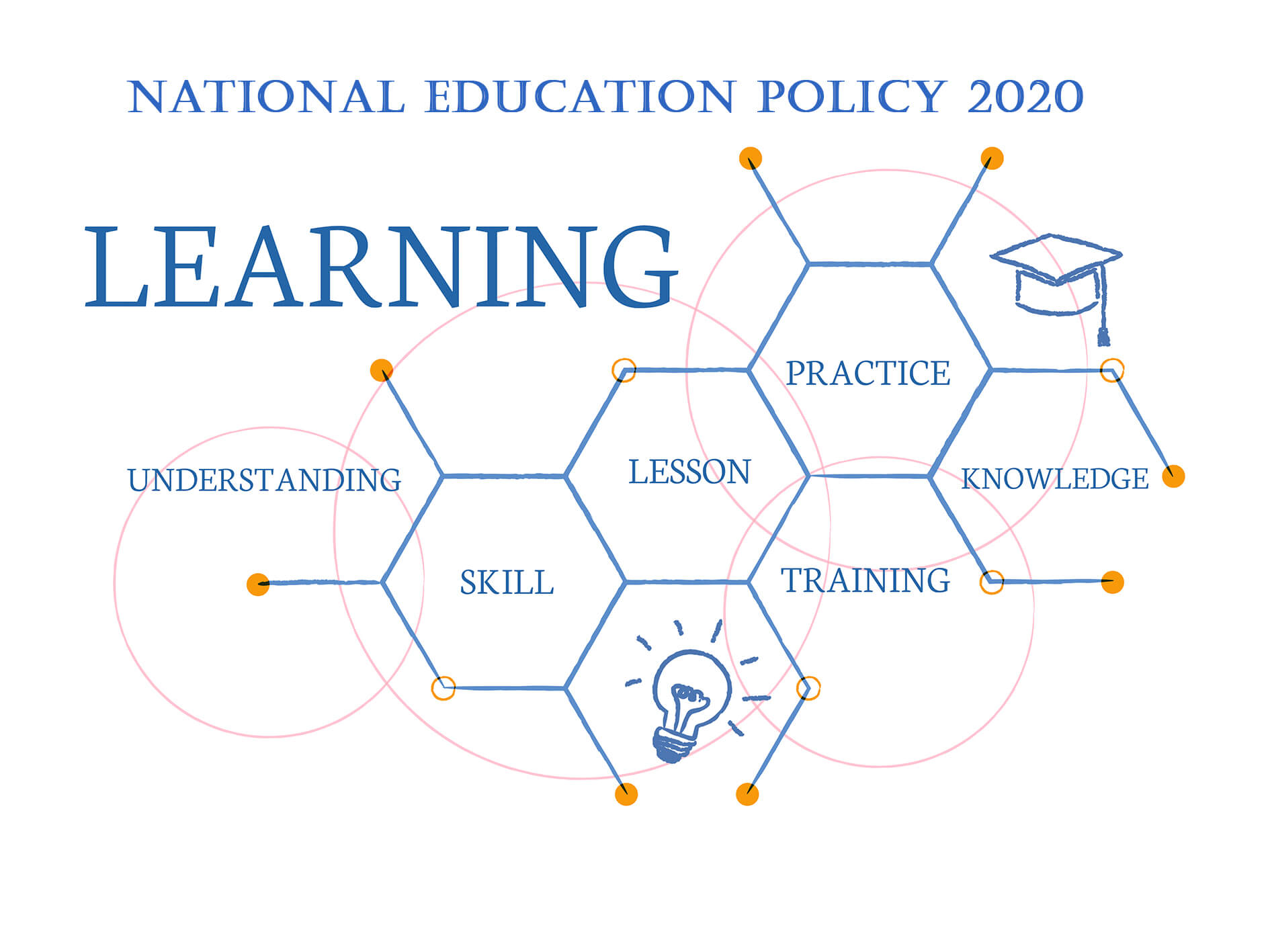The future of the Indian Education system – which was subject to redundancy by eons (precisely 34 years) of unfruitful and lifeless existing systems – now finally breathes a new ray of hope. NEP 2020, approved by the Union Cabinet of India, was announced on 29 July 2020. It layouts the upgraded vision and approach towards India’s New education system. By replacing the existing National Policy on Education of 1986, the radical shift received positive reactions by Indians all alike.
Even though the policy was formed keeping accessibility, equity, and inclusive in mind, there are mixed reactions by some to this change in the educational system of India. Flaws are inevitable, be it any policy or government. There are problematic aspects of the Policy which will be discussed below. Before that, let’s take a look at some highlights of NEP 2020.
Highlights of National Education Policy 2020
Designed to be “Light but Tight”, NEP 2020 focuses on the intrinsic value of being Indian and equipping individuals with intellect, knowledge & skills for global well-being. With the promise of one multidisciplinary institution in every district by 2030, the larger goals of NEP is to convert all HEI (higher education institutions) into multidisciplinary institutions.
- Single stream education centers or institutions would slowly shift towards multidisciplinary institutions.
- Engineering, Medical, and Business institutes will be inclusive of arts and humanities and vice versa. The new education policy of India considers science to be an important discipline and path of knowledge for Arts and Humanities students too.
- Vocational Education will be fused into higher and second higher educational bodies phase by phase. By the year 2025, almost 50% of students across the country would have access to Vocational Education in India.
- The new policy is also aimed towards creating a National Research Foundation.
- A Higher Education Commission of India will be created.
- A student can have multiple exit options during a 3-4 year undergraduate degree. There will be a certificate for – 1 year of vocational or professional degree pursuit, 2-year Diploma, or 3-year bachelor program. The preference will lean more towards a 4-year multidisciplinary bachelor program.
- Coding will be a subject for students from std 6th onward. As the future is moving towards more digital literacy, the new education policy of India focuses on equipping students with high Mathematics, and computational skills.
There are numerous details of NEP 2020 which you can read here.
Now let’s come to the main cake here. What is the future of budding or aspiring Doctors and Engineers? There are positive, negative, and mixed reactions to this.
What will be the impact of NEP 2020 on future doctors as of current updated policy?
The policy specifically states –
“Healthcare education needs to be restructured so that the duration, structure, and design of the educational programs need to match the role requirements that graduates will play”
It is also the vision of the new education policy of India to reform primary and secondary Healthcare on all aspects right from knowledge to skills to infrastructure. It will implement assessment tools at specific intervals for working in primary care and secondary hospitals. It envisions to improve healthcare delivery in the country.
But…
There is a focus by the government to implement a basic understanding of alternative medicines like Ayurveda, Yoga & Naturopathy, Unani, Siddha, and Homeopathy. While some alternate medicinal disciplines are highly controversial and in its debatable stage, the mandatory infusion of both Allopathy and Traditional medicine knowledge would ill-equip future doctors.
The policy speaks –
“Given that people exercise pluralistic choices in healthcare, our current healthcare systems must be integrative meaning that all students of allopathic medical education must have a basic understanding and knowledge of Ayurveda, Yoga and Naturopathy, Unani, Siddha, and Homeopathy (AYUSH), and vice versa”.
The medical community protested against these points and the general secretary of IMA was quoted saying “We must not intend to produce hybrid doctors as it will eventually produce official quacks”.
The focus on acquiring knowledge in multiple areas of medicine will produce quantity but stoop down on quality. The change in Healthcare by NEP 2020 mainly focuses on the integration of traditional and modern medicine. But because the development of newer modern medical infrastructure and research is still in its primary stage in India, it would not be wise and result in a chaos of knowledge amongst future doctors.
Some of the flaws of NEP 2020 when it comes to Medicine and Healthcare ↓
- Centralized exit examination (National Exit Test – NexT) for MBBS education
- Pluralistic healthcare education and delivery – The proposal of a common foundational course in the first year.
- Increasing the intake of students for Healthcare education – The move was welcomed as it laid down a larger plan. But the final proposal of the policy did not mention anything about this.
- Expanding Post-Graduate Medical Education – There was a huge shortage/gap between the number of seats for MBBS and seats for Post Graduation in Medicine. The draft of NEP 2020 discussed this but failed to include it in the final proposal.
What will be the impact of NEP 2020 on future Engineers as of current updated policy?
The National Education Policy as of now propose a few important things
- Introducing Coding from class 6
- Building National Research Foundation
- Pushing current educational models towards job oriented skills
- Vocational Education and productive exits from courses.








